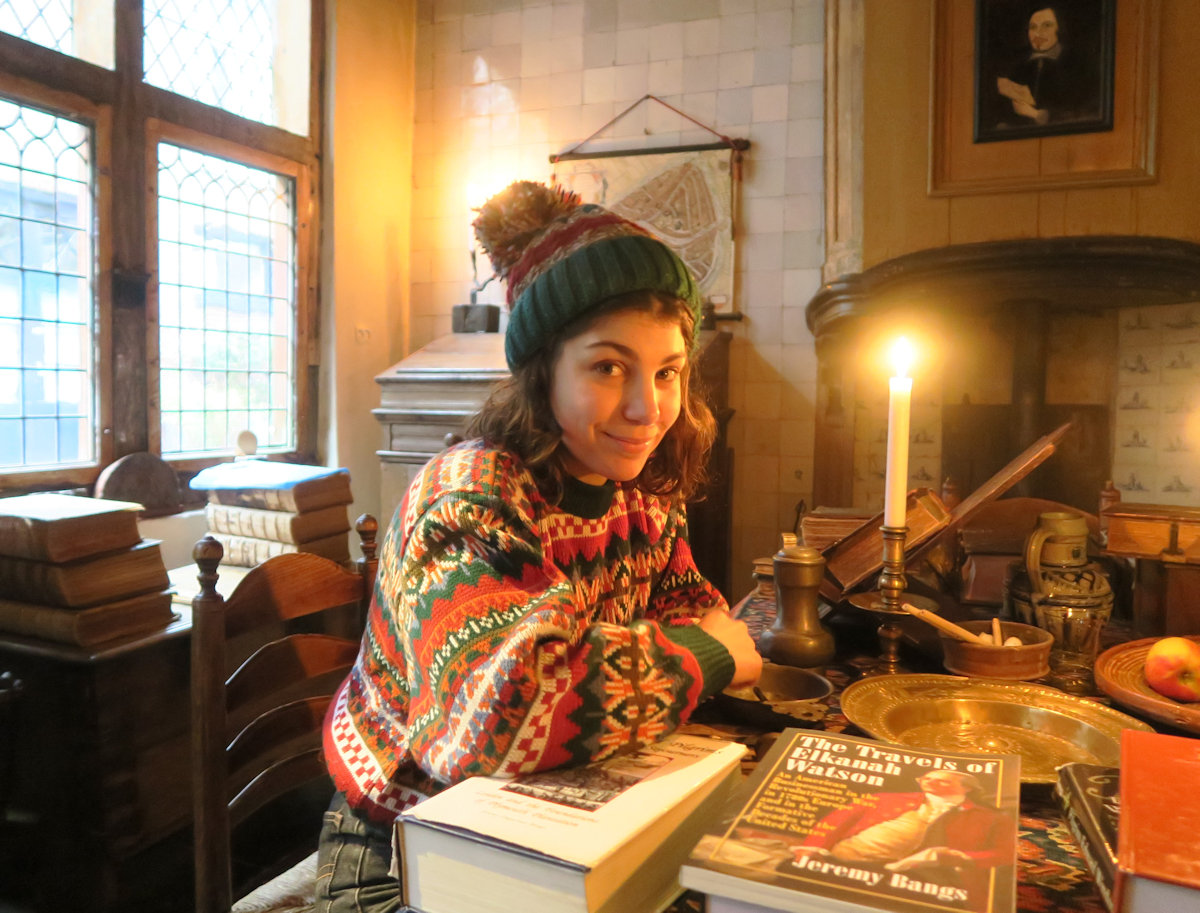Our Mission
The Leiden American Pilgrim Museum Foundation (LAPMF) is a Dutch non-profit cultural and educational ‘ANBI stichting’, chartered in 1997, that promotes awareness of the significance of the Pilgrims in the Dutch-American heritage. The foundation's RSIN is 8063.07.717.
Specifically, the Foundation's four main activities are these:
Running the Leiden American Pilgrim Museum, which tells the Pilgrim story using collections of furnishings and artworks in a house built in 1370 whose rooms recall Pilgrim times;
Carrying out a project to transcribe, edit and publish 17th century documents related to the Pilgrims – thus providing the raw material for historians to use: e.g. in writing history books and articles
Carrying out and presenting historical research through writing books and articles (in part but not only using transcribed raw material), presenting lectures, and attending conferences
Running this website which contains information on the above activities and (much the greater in quantity) knowledge about the Pilgrims in Leiden.
In addition, the Foundation participates in a variety of other activities by virtue of its status in the world of Pilgrim history, e.g. conservation projects, advice on commemoration events and exhibitions, etc.
Our team
Board members of the Leiden American Pilgrims Museum
- Wang Choy, vice chairman
- Jane E Choy-Thurlow, secretary
- Sarah Moine, curator and active director

Jeremy Bangs
founder
Jeremy Bangs is the founder of the Leiden American Pilgrim Museum Foundation and was director from 1997 to 2023.
He was born in Astoria, Oregon, but had very little influence on the town as he left when he was still an infant. After study at the University of Chicago, he completed his degree work at the University of Leiden (Ph.D., 1976). He stumbled upon the topic of the Pilgrims while he worked at the Leiden Municipal Archives. He used to say that people warned him: the subject was of little interest, and anyway, everything about it had already been discovered. His decades of scholarship afterwards proved this somewhat wrong.
He served as Curator of the Leiden Pilgrim Documents Center of the Leiden Municipal Archives (1980-1985), Chief Curator of Plimoth Plantation (1986-1991), visiting curator of manuscripts, Pilgrim Hall Museum (1994-1996). His research on the cultural history of Leiden in the 15th and 16th centuries was supported by grants from The Netherlands Organization for Pure Scientific Research, Z.W.O. and from the Rijksuniversiteit Leiden (1972-1977). He was Visiting Distinguished Professor of Art History at the Arizona Center for Medieval and Renaissance Studies in 1986. He founded the Leiden American Pilgrim Museum in 1997.
Bangs published eighteen books and many articles about the Pilgrims. They are presented in the Historical Research part of this site.
He has also published a variety of books and articles on Dutch art and architecture, and Dutch and American history. His books on non-Pilgrim topics include:
Cornelis Engebrechtsz.'s Leiden (1979); Church Art and Architecture in the Low Countries before 1566 (1997); Swiss Sisters Separated, Pioneer Life in Kansas, Oklahoma, and Washington, from the letters of Louise Guillermin... (2003); Letters on Toleration: Dutch Aid to Persecuted Swiss and Palatine Mennonites, 1615-1699 (2004); The Travels of Elkanah Watson, An America Businessman in the Revolutionary War, in 1780s Europe and in the Formative Decades of the United States (2015).
His articles on historical and art topics have appeared in: Sixteenth Century Journal, Quaerendo, Renaissance Quarterly, Oud Holland, Bulletin KNOB, Doopsgezinde Bijdragen, Studia Rosenthaliana, Jewish Social Studies, Nederlands Kunsthistorisch Jaarboek (1986), Wallraf-Richartz Jahrbuch (1999), Church History, Historically Speaking, Museum History Journal, etc.
Jeremy’s work helped the understanding of various aspects of history: art history, colonist history, American history, Dutch history, religious history, social history. For his contribution, he was given the title of Knight of the Order of Oranje-Nassau by King Willem-Alexander. His research also allowed a better understanding of Native American history, especially land ownership in the 17th century, with an impact for people still today. As a result, he was very proud to have been awarded an honorary wampum necklace by the Cothutikut Mattakeeset Massachuset tribe.
His motivation and dedication were awe-inspiring and quite frankly exhausting to witness. We are humbled by the task before us: continuing his legacy, and striving to keep alive his love for history and his respect for accuracy.

Sarah Moine
Sarah runs the day-to-day operations at the museum; she will be the one welcoming you during your visit, answering your questions and presenting the museum’s collections.
She was born in France and studied Art History in Paris. After her years at the Ecole du Louvre, she spent a year of Masters in the Netherlands specializing in Dutch art. She is now a Ph.D. candidate at Leiden University. Her research focuses on the artistic production of Leiden in the 16th and 17th centuries.
She has worked at the Leiden American Pilgrim Museum since 2015, after having been herself a captivated visitor, and she has been part of several of its projects, including the publication of the Intellectual Baggage Catalogue.
She has also participated in projects at the RKD – Nederlands Instituut voor Kunstgeschiedenis (De Kunstambachten in Leiden) and the Museum De Lakenhal (Leiden).
Address
Leiden American Pilgrim Museum
Beschuitsteeg 9
2312 JT LEIDEN
NETHERLANDS
E-mail: director@leidenamericanpilgrimmuseum.org